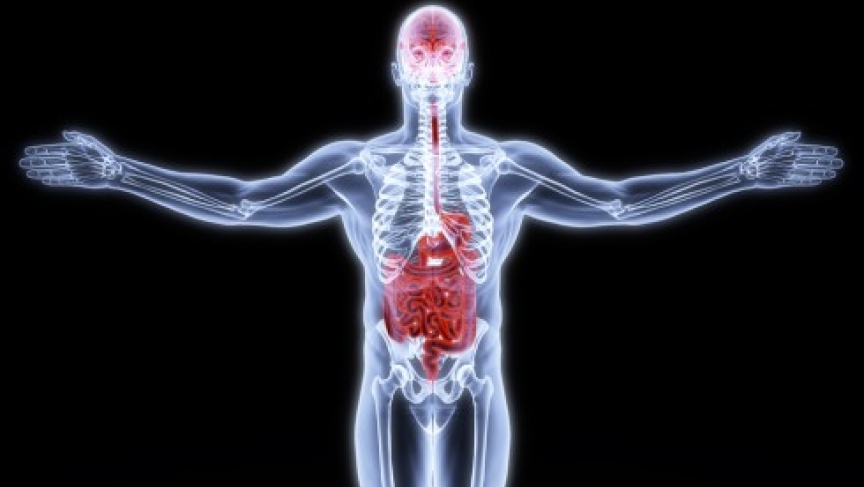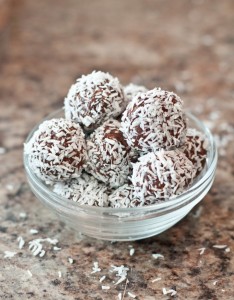To those who have been asking, thank you for your patience…….
The gut is often referred to as the second brain, and some suggest even the first. There is overwhelming evidence reinforcing the distinct correlation between what we put in our belly and how it affects our brain, and specifically our mental health. Foods that cause inflammation are significantly linked to depression and anxiety, both of which are often a result of an over-worked (fighting/flight-ing) or underworked (freezing) nervous system. When we are anxious, we fight; puff up like a blow fish. When we freeze we retreat and shut down, slow down like a turtle. Interestingly enough, both responses result in inflammation, an innate mechanism of survival. Our bodies are really doing what they feel is best, they are trying to heal us, but I believe our culture and quality of life doesn’t often promote the space, or time needed to heal….so we keep pushing, or keep hiding and thus live in a chronic state of vigilance, inflammation, exhaustion, and amygdala functioning. For many of us, this chronic fight-fight-freeze is engrained in the early years of brain development and translates to unstable mental health and executive functioning as adults. Many people, to varying degrees, suffer from both depression and anxiety, constantly fluctuating between the two, exhausting and confusing the nervous system. This is why it is so easy to be attracted to foods that enhance the response system the body ‘thinks’ it needs, but in reality is just perpetuating the unhealthy and polarized cycles.
It is easy to become overwhelmed with the physiological mechanics of it all; endogenous and exogenous oxidative and nitrosative, stress interaction between glutamtergic and monoaminergic systems, cytokines, etc. So, I’ll spare you the details, but know that in my own battle with both depression and anxiety, as well as cancer (interesting enough there is a huge correlation between inflammation, depression and most cancers) I have done painstaking research on the psycho-somatic process that apply to the development, treatment and healing of depression, anxiety and auto-immune related diseases. There is mounting evidence supporting the impact of food on our mental health. Despite the rise of scientific credibility, this is not new news. For thousands of years lineages such as Ayurveda, Taoist and Earth-centric cultures have known the connection between food and healing/medicinal plants and psychological and spiritual wellness.
Primary foods that increase inflammation and depression and anxiety:
Sugar (this includes artificial sweeteners): Dammit, I know!! Yes, sugar hijacks your brain. It feels like a sweet comforting blanket of goodness, but it is a flush of dopamine that requires more dopamine to meet the fix (sounds like addiction a bit?) Sugar makes the brain crave and want more….and it aids in inflammation, again perpetuating the very cycle we are eating sugar to avoid. Talk about spinning our wheels! Sugary food aren’t just sweet treats, but also a heavy intake of carbs.
Alcohol: Bottom line, alcohol is a depressant, meaning it oppresses the natural and healthy process of the central nervous system and how we process emotions (or not). Alcohol, even though doesn’t feel like it at the time, exacerbates the symptoms associated with depression (keep in mind there is a significant amount of sugar in most alcohol).
Hydrogenated oil, fast food, trans-fats and high sodium foods: All of these foods increase weight thus impeding on healthy digestion/elimination and eliminate healthy bacteria and digestive enzymes, clog arteries and prevent blood flow to the brain,-a basic necessity for optimal brain function. Processed foods, across the board, are the most detrimental to mental and physical health. Making a commitment to remove ‘fake foods’ is going to make a huge impact on your wellness and cognitive functioning.
Caffeine: This temporary stimulate boosts the body’s neutral state into a rapid function, followed by a dramatic release/withdrawal. It confuses the process of natural energy distribution. It also impairs sleep and insomnia results in moodiness and fatigue.
Dairy, wheat and soy: All of these are difficult to digest, slowing processes and creating stagnation and inflammation.
Stop punishing yourself.
Sharing this information is not intended for you to carry shame or guilt because you love morning coffee, donuts at the conference meeting and a glass of wine after a long day. My intention is not to enforce punitive measures, enjoy the treats of life, but in moderation and good assessment to how you are feeling. It requires a tremendous amount of discipline to not eat the foods that make us feel crappy when we are already feeling crappy. The goal is to replace our false-sense of security substitutes with food that works with us rather than against us in combating depression and anxiety. For instance, I know that my depression peaks hormonally so I keep a handy dandy chart and make sure to load up on anti-inflammatory foods prior to my cycle. I also know that if there are days when I do eat more sugar, to counter balance with more grounding food, hydration,exersise and resist sugar intake for a while. It starts out as a healthy negotiation of desires and needs and after practice will result in disciplined and balanced living.
The tendency is to reach for these foods when we are feeling down. The mindfulness work is interrupting the cycle of toxic foods feeding emotional discomfort and introducing healthy foods that promote healthy emotional self-regulation. The more we reach to life sustaining foods, the more we can positively associate to them and the easier it becomes to make that a regular coping skill.
Vegetarian Anti-inflammatory foods helping mitigate depression and anxiety:
Dark, leafy greens: Antioxidant rich and helps to fight free radical damage that can infiltrate a compromised immune system. They are also loaded in vitamins A, C, E, K , mineral and phytochemicals know to address inflammation specifically in the brain. Kale is often a go-to in this category, but it can be hard to digest (particularly for those of us who are chronically inflamed). Arugula is a nice alternative or to mix in with the more dense leaves. A
Raspberries, Blackberries, Blueberries and Strawberries: These are also high in antioxidants and ‘healthy’ sugars. Fruits also improve hydration decreasing vascular retension.
Cashews, Walnuts, Chia Seeds: It’s believed that a large handful of cashews is equivalent to half a Prozac. Walnuts are one of the richest plant based sources of omega-3. Chia Seeds, as well, are rich in omega-3, antioxidants and cancer/inflammatory fighting properties.
Avocado: They consist of the healthy fats that promote optimal brain functioning and regulation. They are low in sugar, high in fiber and protein.
Mushrooms: The chemical properties of mushrooms lower insulin and regulate blood pressure, which smooth’s out mood disturbances. They are also high in healthly bacteria, which encourages healthy gut.
Onions and Garlic: These vegetables contain high concentrations of anti-inflammatory flavonoid antioxidants.
Tomatoes: They are high in folic acid and alpha-lipoic acid, which can prevent an excess of homocysteine. Homocysteine reduce the production of important neurotransmitters like serotonin, dopamine, and norepinephrine.
Cocnut oil: A wonderful alternative to traditional oils, coconut oil is a natural anti-inflammatory, it boosts metabolism, helps balance hormones, and is an anti-microbial agent.
Turmeric (cur cumin): One of the oldest natural remedies for pain associated with inflammation and fatigue as well as cloudy mind. Turmeric is significant in aiding digestion and fighting cancerous and immune compromising cells.
Kim Chi: An acquired taste indeed, Kim Chi is fermented cabbage (or mixed veggies). It is another great source of healthy gut bacteria; (seeing the common theme?) aiding in digestion, nutrient absorption and strengthening immunity. Somedays when I am feeling lethargic, Ill have even just a few pieces and it will give me a great energy boost and helps sharpen my mind.
Try to incorporate as much of this list every day. If you are just beginning your journey with healthy eating it can seem daunting so take it slow and remember its not about punishing yourself or feeling shame, its about feeling empowered and finding a sense of self agency to help compliment the changes you might already be doing cognitively and behaviorally.
A great way to get most of these ingredients is a salad. I usually eat 2-3 salads a day loaded with these goodies (plus olives and artichokes). Get creative with your assembly, salads require little prep and can be surprising delicious and filling. Smoothies, soups, omelets and stir fry’s are other great and relatively quick ways to incorporate these staples.
There are thousands of compositions including foods, herbs and supplements to help address inflammation resulting in depression and anxiety. I encourage you to be proactive in exploring your resources, to feel empowered with the options of alternative and complimentary practices. I highly recommend seeking consultation with a Nutritionist (I have a sister-friend I highly recommend), naturopath or invest in some quick and easy healthy cook books or surf the web for online resources.
Here is my favorite sweet treat recipe to sooth those cravings:
Ingredients
- 1 cup of raw cashews
- 8 pitted dates
- 2 tablespoons raw cacao powder
- 1 teaspoon of vanilla extract*
- 1/2 cup of shredded unsweetened coconut
- 2 teaspoons agave syrup (feel free to eliminate the extra sugar)
Instructions
- Add cashews, dates, cacao powder and vanilla to a food processor. Blend and while blending add the agave syrup.
- Form the mixture into small balls and then roll them in a bowl with the coconut until coated. Place in fridge until balls are hardened

